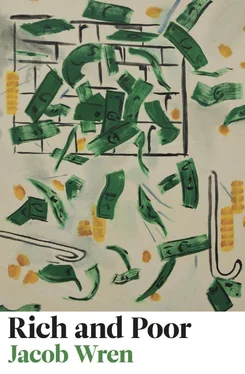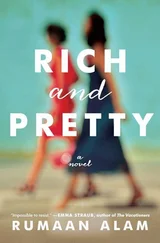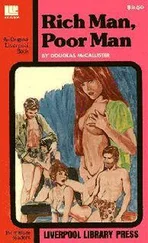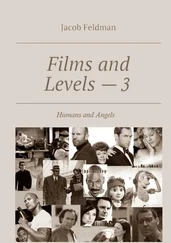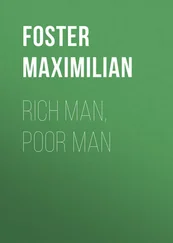Over lunch I learned she’d heard I was trying to start a union. In fact everyone knew. It was the most gossip-worthy thing that had happened here in a very long time. She had come to the library to find me, and didn’t have words to describe how unexpected it was to walk in and see me at the piano, hunched over it like I’d been caught doing something illicit. She came to find me because her husband had been a union leader. He died over twenty years ago. She said that he died, she was used to presenting it that way now, but what she meant was that he had been killed. She worried I might be killed as well, in a way she wanted to warn me, but then thought that was stupid, since I likely already knew what a dangerous mess I was in.
She also wanted to talk strategy, wanted to help if she could. Because of her husband she knew a great deal about these things. As we talked and I answered her many questions, as I tried to explain how I saw the situation and what we eventually hoped to do, I could see a kind of pain dawning on her face. I didn’t have to ask why. I could see she was shocked by how little I knew, how little experience I had, the overwhelming degree to which I was in over my head. I tried to imagine what she was thinking: that her husband had been so much more skilled and experienced in these matters and even he was killed. At the same time I saw something else, that the more she understood the more she wanted to help, the more she understood just how much she could. If I knew so little then she definitely knew more.
I started to think of her as ‘the mentor.’ She would come to the library, listen to me play. I would show her the books I’d been reading and she would always have something to say. Her thinking was so precise and clean. She had been through all of this before, packing so many possibilities into just a few thoughts. When I was clearly wrong, she cut me down with a joke and we’d laugh about it together. It felt like the first time I had really laughed in many lifetimes. I was talking to so many people, each day in the fields, quietly joking and laughing with man after man, their ideas, their fears. So many fears and I took them all in. I start to think fear is the most furious part of courage. Knowing how full and real and justified your fears are but still not letting them stop you. Each day I would wake up and tell myself: if I die here in the fields, shot by police or beaten by whatever henchmen the subcontractors can pay a few dollars to do so, I have to believe all of this will have been worth it, was the right thing to do. If we don’t make a union now, perhaps we’ll still form the groundwork for some future actors to learn from our mistakes, make it a reality in some distant future. Like the folk songs I didn’t know I still knew, but came through me when I sat down at the piano, when I was least expecting them. This idea that even in the fields, with nothing but sweat, we could raise our lot by working together was an idea that now existed, and would keep coming back again and again until it finally had its day.
1.
I had left the money on the dresser, much as I had so many times before. Four thousand in cash. I had come, come hard, and it winded me, an orgasm like a punch in the gut, reminding me of my age — a thought I was finding increasingly unpleasant as I travelled the world, worried I was devolving into a mere figurehead. I was resting for a moment, gathering the energy so we could go again (I always prefer it more than once) and as I rested we were talking. She was a new one. There were four or five I usually had to choose from, but this afternoon this one was new. Then she told me she had read my book, and I must have gone pale, because she asked me if I was all right, if I wanted a glass of water. “Which book,” I asked. She told me she had read the one I wrote, the one with my picture on the cover. I was about to ask her what she thought then thought better of it, felt I didn’t actually want to hear her answer, worried she was about to tell me something extremely unpleasant about myself, but then asked her what she thought about it. “It was brave of you to write,” she said, considering her words closely, perhaps also worried she was about to tell me something I didn’t exactly want to hear. “You told things about yourself that a lot of men wouldn’t tell.”
“Like what?”
“Like your friendship. How you behaved when Emmett ended up on the other side.”
“How did I behave?”
“You felt betrayed. But you were also honest about it. Admitted you were complicit in the problem. I’ve had a few friendships go sour. I know how painful these things can be.”
“You think I was honest?”
“Someone else might have blamed it all on the other guy. You took responsibility. That shows character, takes guts.”
I wondered if I was just paying for sex or also paying for therapy. Or for praise, for an attractive young woman to praise me with or without reason. She continued:
“I meet a lot of rich men. They always blame the other guy and I never believe them. Most often, whatever you accuse someone else of is probably the exact thing you do the most. Strange that’s how our minds work: denying our own shit and magically inserting it into the other one’s intentions. But you didn’t do that. You owned up.”
I was searching my memory, desperately trying to remember what I had actually said about Emmett and his departure. What had she read, and had I actually written it or did she find it between the lines? Was this yet another reason people were now suspicious of me, because I had admitted in writing to the betrayal of one of my closest friends? I wonder how many of those I dealt with on a daily basis had actually read my book? Or worse, heard rumours about its contents, rumours that exaggerated certain aspects of my misdeeds.
“You’re telling me all this very calmly. Do you do always talk this way to your clients?”
“You’re new. But I don’t actually see so many new ones. Most of the men come back, at least the ones I like. They’re rich, they can go fuck any girl in the world, but they choose to come here. And I think it’s because I’m honest with them. I mean, I’m not tactless. But I talk to them, tell it like it is.”
“What you said could have made me angry. Weren’t you afraid I’d get angry?”
“Why would you get angry?”
“It’s a backhanded compliment.”
“I don’t do backhanded compliments. What I say, I mean.”
“What would you have done if I’d gotten angry?”
“There’s a number to call. Five minutes to get here and then the bodyguards throw you out. But five minutes is still long enough for a man to kill a woman. I’ve called it a few times and I’ve never had a problem. Are you angry?”
I was getting angry but didn’t want to admit it. I believed her for some reason, believed she was being honest with me, and it made me wonder how many people lied to my face day after day. We fuck two more times and then I was out on the street with nowhere particular to go. Maybe I should go into therapy. I’ve always thought therapy was bullshit, for the other ones, the ones who couldn’t handle it, but perhaps I was in the process of joining their ranks. I decided to walk home. As a young man I used to walk everywhere, and I found myself wondering how much I missed in only seeing the world through a limousine window. So I walked. And as I walked, my mind cleared by sex, I tried to examine my predicament from every possible angle. There were so many angles, so many ways of seeing the matter, but the more I walked the more it seemed to me that in fact there was only one. Piano-idiot did this to me. He killed some aspect of my confidence, made it blindingly clear that I was not omnipotent, could die at any moment. That money would not save me. Whether or not Emmett had hired him started to seem irrelevant. Emmett had a reason to hate me. Piano-idiot came on like an unexpected storm. There was of course a way that money could save me: more bodyguards, more surveillance, or simply the resources to make myself scarce. But if money could save me from certain dangers, it couldn’t save me from paranoia. I didn’t want to hide. Should I find piano-idiot or should I simply forget him? Should I find Emmett? What to do with this sudden revelation, that everyone has to face sooner or later, that there are more years in my past than there are in my future? What do I honestly want to do with the years I have left? Do I just want to nail down my legacy or do I still have a few good tricks?
Читать дальше
